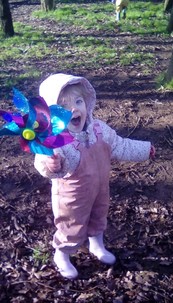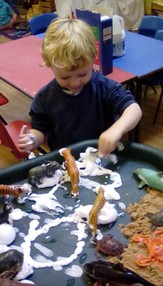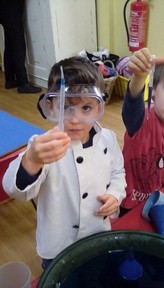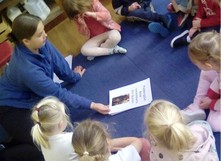
Our Curriculum
The EYFS Curriculum 2021
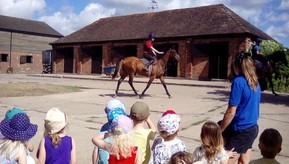
“Every child deserves the best possible start in life and the support that enables them to fulfil their potential. Children develop quickly in the early years and a child’s experiences between birth and age five have a major impact on their future life chances. A secure, safe and happy childhood is important in its own right. Good parenting and high-quality early learning together provide the foundation children need to make the most of their abilities and talents as they grow up.” Early Years Foundation Statutory Framework, 2021
Intent - In EYFS we aim to design and provide a broad, balanced and enriched curriculum. The development is carefully planned to ensure a broad coverage and progression throughout the Nursery. We strive to provide a sense of awe and wonder that instils a thirst for learning. Therefore, embedded throughout the curriculum are enrichment opportunities to make learning memorable through hands on learning experiences, hooks for learning and a variety of visits and visitors.
Implementation- Our EYFS curriculum follows the statutory guidance EYFS Framework 2021 and includes the Characteristics of Effective Teaching and Learning. The characteristics highlight the importance of a child’s attitude to learning and their ability to play, explore and think critically about the world around them.
The three characteristics are:
Playing and Exploring - children investigate and experience things, and ‘have a go.’
Active Learning - children concentrate and keep on trying if they encounter difficulties, and enjoy achievements.
Creating and Thinking Critically - children have and develop their own ideas, make links between ideas, and develop strategies for doing things.
Seven Areas of Learning
The EYFS framework includes seven areas of learning and development, all of which are seen as important and interconnected. However, three areas are seen as being particularly important for igniting children’s curiosity and enthusiasm for learning, for building their capacity to learn, form relationships and thrive. They support children’s learning in all other areas and are known as the Prime Areas.
The 3 Prime Areas are:
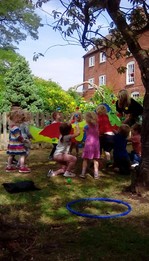
Communication and Language – Listening, Attention and Understanding and Speaking
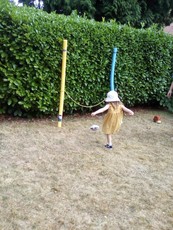
Physical Development – Gross Motor and Fine Motor Skills
Personal, Social and Emotional Development – Self-regulation, Managing Self and Building Relationships
The 4 other areas are known as the Specific Areas of learning, and they develop essential skills and knowledge for children to participate successfully in society.
The 4 Specific Areas are:
Literacy – Comprehension, Word Reading and Writing
Mathematics – Numbers and Numerical Patterns
Understanding the World - Past and Present, People, Culture and Communities and The Natural World
Expressive Arts and Design – Creating with Materials and Being Imaginative and Expressive
